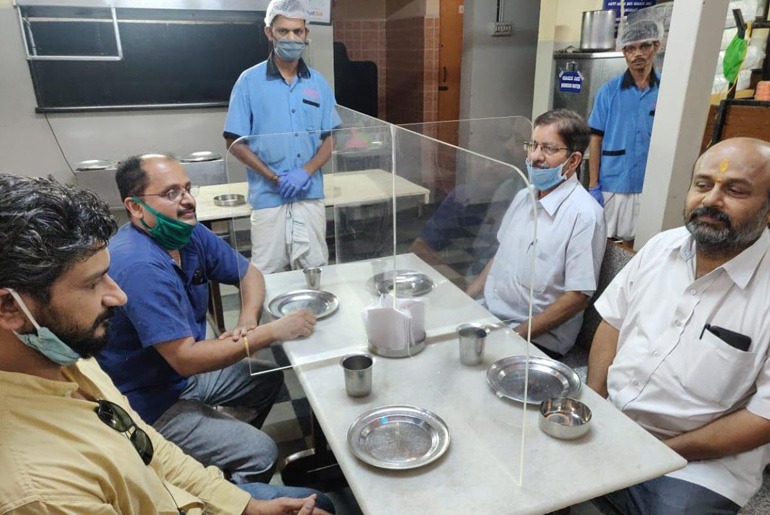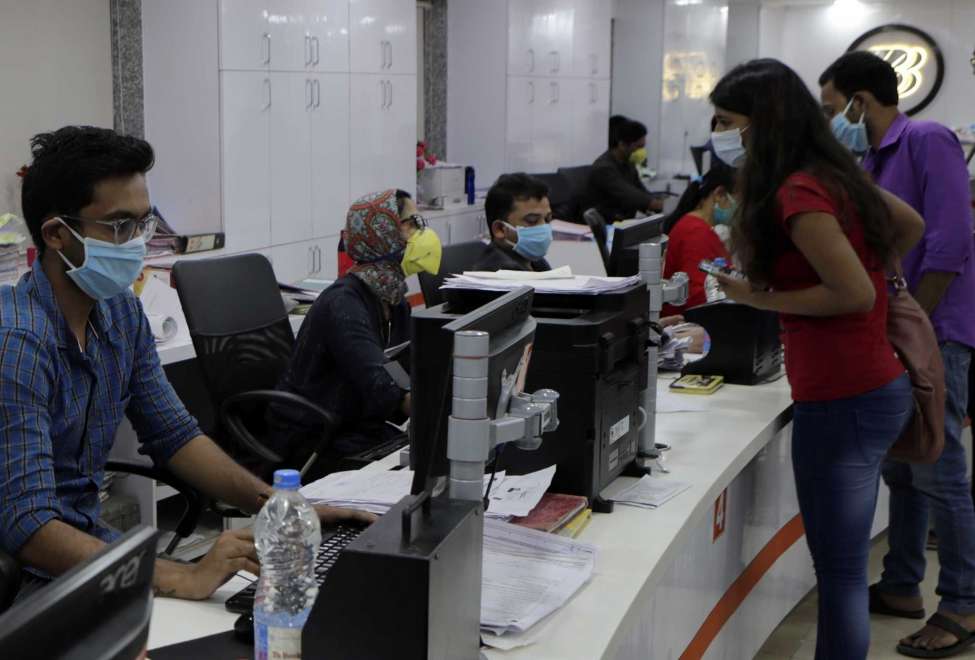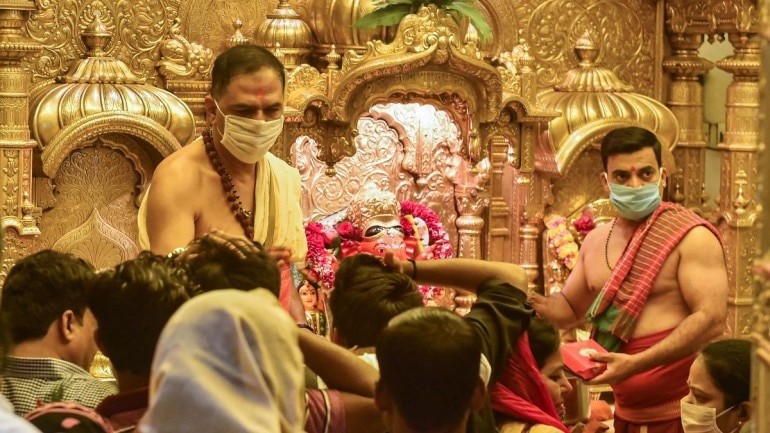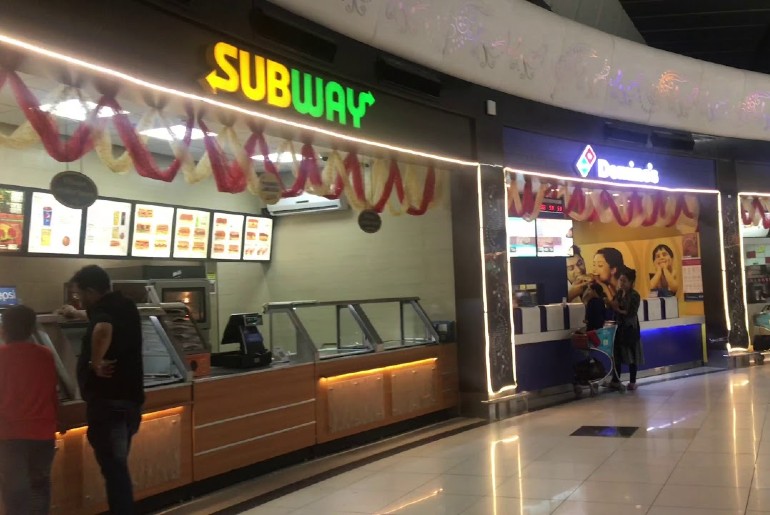After being in a state of complete lockdown for almost 2 whole months, India is all set to ease restrictions and enter into the unlock mode June 8 onwards. As we get ready to transition from Lockdown 5.0 to Unlock 1.0, the government has issued a fresh set of guidelines for the opening of shopping malls, hotels, restaurants, offices and religious places in the country.
While these establishments in containment zones will remain closed, only those outside containment zones will be allowed to open up. Let’s have a closer look at these guidelines and ensure that we stick to them. Also, try not to get too overwhelmed!
New Guidelines Released By Govt For Unlock 1.o
To ensure that reopening takes place smoothly, the Health Ministry has laid out ‘specific’ standard operating procedures (SOPs) for each type of establishment.
Restaurants:
1. Takeaways to be encouraged instead of dine-in. Food delivery personnel should leave the packet at customer’s door. They should NOT handover the food packet directly to the customer.
2. The staff for home deliveries shall be screened thermally by the restaurant authorities before going for delivery.
3. Entrances of restaurants should mandatorily have hand hygiene (sanitizer dispenser) and thermal screening provisions.
4. All staff and patrons to be allowed entry only if using face cover/masks. The face cover/masks has to be worn at all times inside the restaurant.
5. Tables to be sanitized each time customer leaves.

6. Additional patrons should be seated in a designated waiting area following norms of social distancing.
7. Specific markings should be made with sufficient distance to manage queues and ensure social distancing in the premises.
8. Seating arrangement to be made in such a way that adequate social distancing is maintained. Not more than 50% of seating capacity is permitted in restaurants.
9. Disposable menus are advised to be used.
10. All restaurants should use good quality disposable paper napkins instead of cloth napkins.
11. Buffet service in restaurants should strictly follow social distancing norms.
12. Valet parking, if available, shall be operational with operating staff wearing face covers/ masks and gloves as appropriate. A proper disinfection of steering, door handles, keys, etc. of the vehicles should be taken up.
13. Contactless mode of ordering and digital mode of payment (using e-wallets) to be encouraged.
Hotels:
1. Details of the guest (travel history, medical condition) along with ID and self-declaration form must be provided while checking-in.
2. Rooms and other service areas must be sanitized each time a guest leaves.
3. In the kitchen, staff should follow social distancing norms. Kitchens area must be sanitized at regular intervals.
4. Deep cleaning of all washrooms must be ensured at regular intervals.
5. Proper disposal of face covers / masks / gloves left over by patrons and/or staff should be ensured.
6. Staff / waiters should wear masks and hand gloves and take all other required precautionary measures.
Also Read: Experts Predict 5 Trends About Future Of Travel In India
Offices/Workplaces
1. Entrances to have mandatory hand hygiene (sanitizer dispenser) and thermal screening provisions.
2. Only asymptomatic staff/visitors shall be allowed.
3. Those residing in containment zones should should be permitted to work from home.
4. All employees at higher risk i.e. older employees, pregnant employees and employees who have underlying medical conditions, are advised to take extra precautions. They should preferably not be exposed to any front-line work requiring direct contact with the public. Office management should facilitate work from home wherever feasible.
5. All officers and staff / visitors to be allowed entry only if using face cover/masks. The face cover/mask has to be worn at all times inside the office premises.

6. Routine issue of visitors/temporary passes should be suspended and visitors with proper permission of the officer who they want to meet, should be allowed after being properly screened.
7. Meetings, as far as feasible, should be done through video conferencing.
8. Staggering of office hours, lunch hours/coffee breaks to be done, as far as feasible.
9. Any shops, stalls, cafeteria etc., outside and within the office premises shall follow social distancing norms at all times.
10. Specific markings may be made with sufficient distance to manage the queue and ensure social distancing in the premises.
11. Proper cleaning and frequent sanitization of the workplace, particularly of the frequently touched surfaces must be ensured. Regular supply of hand sanitisers, soap and running water in the washrooms must also be ensured.
12. Seating arrangement in work premises to be made in such a way that adequate social distancing is maintained.
13. Number of people in the elevators shall be restricted, duly maintaining social distancing norms.
14. For air-conditioning/ventilation, the guidelines of CPWD shall be followed which emphasizes that the temperature setting of all air conditioning devices should be in the range of 24-30 degrees Celcius; relative humidity should be in the range of 40- 70%. Intake of fresh air should be ensured as much as possible and cross ventilation should be adequate.
15. Drivers should maintain social distancing and shall follow required all Dos and Don’ts related to COVID-19. There should be a provision for disinfection of the interior of the vehicle using 1% sodium hypochlorite solution/ spray. Proper disinfection of steering, door handles, keys, etc. should also be taken up.
Also Read: Travelling By Bus, Train Or Flight In India? Read These Travel Guidelines First
Religious Places
1. Entrances to have mandatory hand hygiene (sanitizer dispenser) and thermal screening provisions.
2. Only asymptomatic persons shall be allowed in the premises.
3. All persons to be allowed entry only if using face cover/masks.
4. Shoes / footwear to be preferably taken off inside own vehicle. If needed, they should be kept in separate slots for each individual / family by the persons themselves
5. Specific markings may be made with sufficient distance to manage the queue and ensure social distancing in the premises.

6. Preferably separate entry and exits for visitors should be organized.
7. Physical distancing of a minimum of 6 feet must be maintained at all times when queuing up for entry.
8. People should wash their hand and feet with soap and water before entering the premises.
9. Touching of statues/idols / holy books etc. will to be allowed.
10. Large gatherings/congregation continue to remain prohibited.
11. As far as feasible, recorded devotional music/songs must be played and choir or singing groups will not be allowed.
12. Physical contact while greeting each other must be avoided.
13. Common prayer mats should be avoided and devotees should bring their own prayer mat or piece of cloth which they may take back with them.
14. No physical offerings like prasad/distribution or sprinkling of holy water, etc. will be allowed inside the religious place.
15. Community kitchens/langars / ann-daan at religious places should follow physical distancing norms while preparing and distributing food.
16. Effective sanitation within the premises must be maintained with particular focus on lavatories, hand and foot-washing stations/areas.
Also Read: You Need A Travel E-Pass To Visit These States
Shopping Malls And Food Courts
1. Entrances to have mandatory hand hygiene (sanitizer dispenser) and thermal screening provisions.
2. Only asymptomatic customers/visitors should be allowed.
3. All workers/customers/visitors to be allowed entry only if they’re using face cover/masks. The face cover/masks has to be worn at all times inside the shopping mall.
4. Staggering of visitors to be done, if possible.
5. Adequate manpower should be deployed by Mall Management for ensuring social distancing norms.
6. Proper crowd management in the parking lots and outside the premises must be ensured following social distancing norms.
7. Valet parking, if available, shall be operational with operating staff wearing face covers/ masks and gloves as appropriate. A proper disinfection of steering, door handles, keys, etc. of the vehicles should be taken up.
8. Any shops, stalls, cafeteria etc., outside and within the premises shall follow social distancing norms at all times.
9. Specific markings may be made with sufficient distance to manage the queue and ensure social distancing in the premises.
10. Preferably separate entry and exits for visitors, workers and goods/supplies shall be organized.. Number of customers inside the shop to be kept at a minimum, so as to maintain the physical distancing norms.
11. Seating arrangement, if any, to be made in such a way that adequate social distancing is maintained.
12. Number of people in the elevators shall be restricted, duly maintaining social distancing norms.
13. Deep cleaning of all washrooms shall be ensured at regular intervals.
8. Gaming Arcades, Children Play Areas and cinema halls inside shopping malls will be remain closed.

In food-courts:
1. Adequate crowd and queue management to be ensured to ensure social distancing norms.
2. In food courts and restaurants, not more than 50% of seating capacity to be permitted.
3. Food court staff / waiters should wear mask and hand gloves and take other required precautionary measures.
4. The seating arrangement should ensure adequate social distancing between patrons as far as feasible.
5. Contactless mode of ordering and digital mode of payment (using e-wallets) to be encouraged.
6 Tables to be sanitized each time customer leaves.
7. In the kitchen, the staff should follow social distancing norms.
If you’ve made it to the end, we know that all this information is too much process! However, it is the need of the hour. So let’s take one alert step at a time and we’re sure we can get through all of this together!
Also Read: An 8 Pointer Checklist Before Your Next Domestic Flight
First Published: June 05, 2020 4:01 PM





